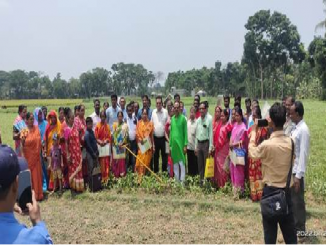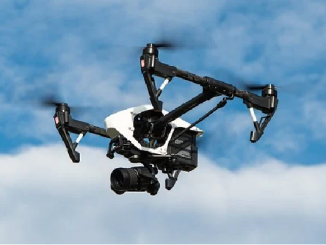
Mar 29:The Department of Agriculture & Farmers Welfare (DA&FW) is implementing the Crop Diversification Programme (CDP), a sub-scheme of Rashtriya Krishi Vikas Yojana (RKVY) in the Original Green Revolution States viz; Haryana, Punjab & Western Uttar Pradesh since 2013-14 to divert the area of water-intensive paddy crop to alternative crops like pulses, oilseeds, coarse cereals, Nutri cereals, cotton, etc.
In addition, the Government of India is also supplementing the efforts of state governments to encourage diversified production of crops such as pulses, coarse cereals, Nutri cereals, cotton & oilseeds under the National Food Security Mission (NFSM), and horticultural crops under Mission for Integrated Development of Horticulture (MIDH). The government of India also provides flexibility to the states for state-specific needs/priorities under RKVY. The state can promote crop diversification under RKVY with the approval of the State Level Sanctioning Committee (SLSC) headed by the Chief Secretary of the State.
The Government is implementing a Scheme on ‘Promotion of Agricultural Mechanization for In-Situ Management of Crop Residue in the States of Punjab, Haryana, Uttar Pradesh, and National Capital Territory (NCT) of Delhi’during 2021-22. At present, the Government has approved the continuation of the scheme up to 30th September 2022 during 2022-23. Under the scheme, financial assistance is provided to the farmers for the purchase of identified crop residue management machinery and to the Cooperative Societies of Farmers, Farmers Producers Organization (FPOs), Registered Farmers Societies, and Panchayats for the establishment of Custom Hiring Centers (CHCs) of identified crop residue management machinery. Financial assistance is also provided to the State Governments, Krishi Vigyan Kendras (KVKs), Indian Council of Agricultural Research (ICAR) Institutions, Central Government Institutions, Public Sector Undertakings (PSUs), etc. for Information, Education and Communication (IEC) activities for creating awareness on crop residue management. The ICAR has developed PusaDecomposer, a microbial consortium of fungal species (both in liquid and capsule forms)for the rapid decomposition of paddy straw. The use of this consortium accelerates the process of paddy straw decomposition in the field itself.
This information was given by the Union Minister of Agriculture and Farmers Welfare Shri Narendra Singh Tomar in a written reply in Lok Sabha today.
****
Disclaimer: We donot claim that the images used as part of the news published are always owned by us. From time to time, we use images sourced as part of news or any related images or representations. Kindly take a look at our image usage policy on how we select the image that are used as part of the news.


